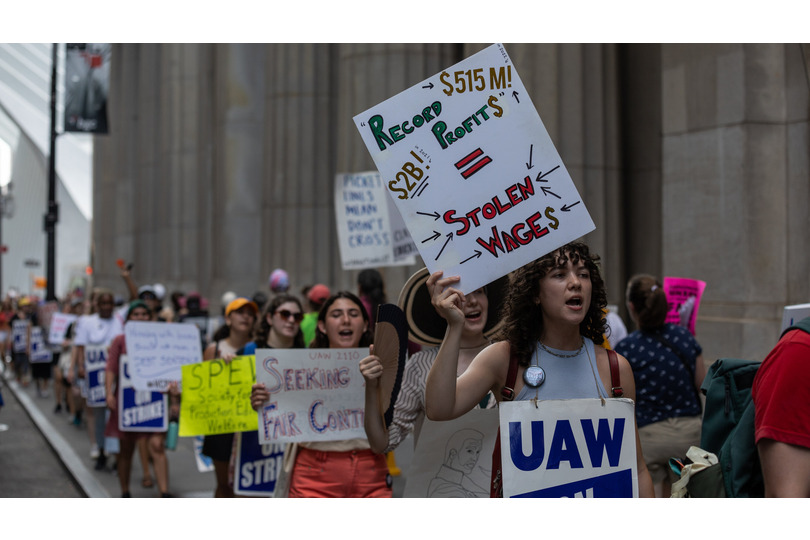Striking HarperCollins Employees and Publisher Reach a Provisional Agreement
The labor issue occurred at a tough time for HarperCollins and other major publishers.on Feb 10, 2023

On Thursday, the HarperCollins union and the publishing business came to a tentative deal that includes a raise in the minimum wages for various occupations and a one-time $1,500 incentive for union members three months after the start of their members' strikes.
Following a lengthy and widely publicized battle between the publisher and its unionized staff, a federal mediator helped to mediate the agreement. It was endorsed by the union and corporate officials and has to be approved by union members. It will be in effect until the end of 2025 if authorized.
About 250 employees in editorial, PR, sales, marketing, legal, and design are represented by the HarperCollins union, which has been bargaining for greater family leave benefits, a more profound commitment from the business to a more diverse workforce, and higher compensation. It requested that the corporation increase the beginning wage requirement from $45,000 to $50,000.
The walkout brought to light the difficulties that many entry- and mid-level employees have throughout the publishing sector, which has historically been a field that draws highly educated people but pays relatively poorly, especially in New York City, where the cost of living is high.
Most significant publishing businesses give equal beginning pay, and several have recently raised compensation. According to the business website Publishers Marketplace, Macmillan increased its entry-level base pay this month from $42,000 to $47,500. Hachette Book Group increased its entry-level pay for workers who reside in costly areas from $45,000 to $47,500 annually.
One of the top five publishing businesses in the US, owned by News Corp, HarperCollins employs over 4,000 people worldwide. The strike didn't significantly affect business operations, but it did cause problems in terms of public relations.
At trade shows like the National Book Awards, striking workers distributed flyers and picketed in front of the company's headquarters. In supporting the striking workers, some literary agencies and writers deferred the submission of fresh manuscripts to the publication.
The labor issue occurred at a tough time for HarperCollins and other major publishers. These companies saw earnings rise during the epidemic but have subsequently seen a challenging economic environment due to inflation, increased supply-chain expenses, and a decline in print sales.
HarperCollins received gloomy news when News Corp revealed its quarterly results on Thursday. The publisher's sales fell by 14% from the prior year's third quarter, and its earnings decreased by 52%.
HarperCollins' chief executive, Brian Murray, informed employees in a message in January that the business will decrease the number of people employed in North America by 5% before the end of the fiscal year.
We are still living in unpredictable and difficult times, he remarked.

.jpg)
.jpg)
.jpg)
.jpg)
.jpg)
.jpg)

.jpg)
.jpg)
.jpg)
.jpg)


_(1).jpg)
.jpg)










Sorry! No comment found for this post.